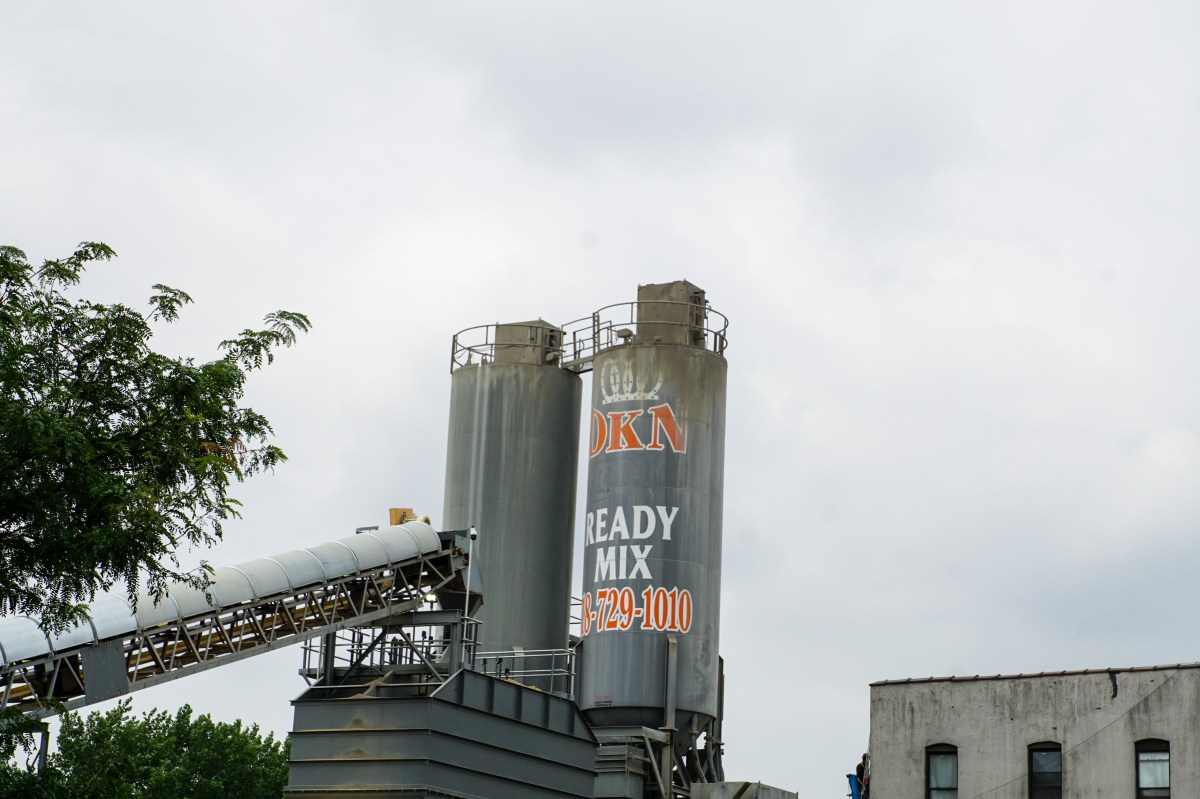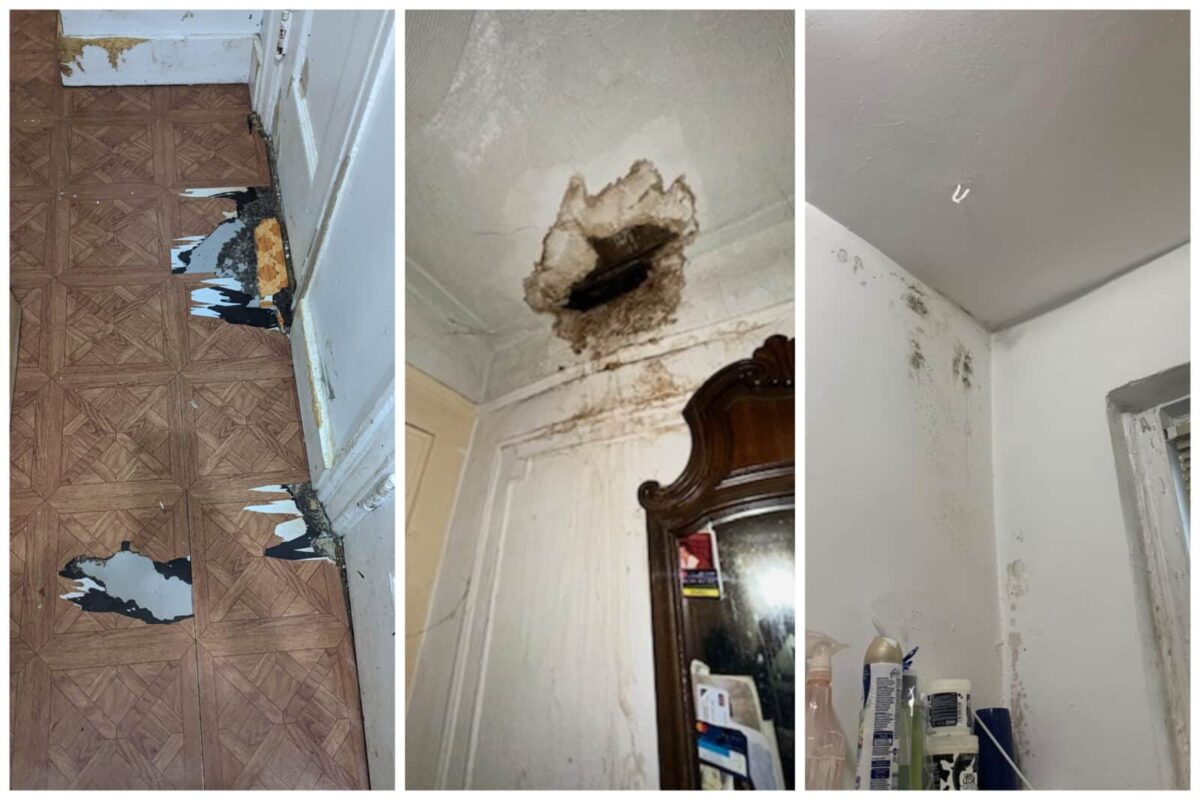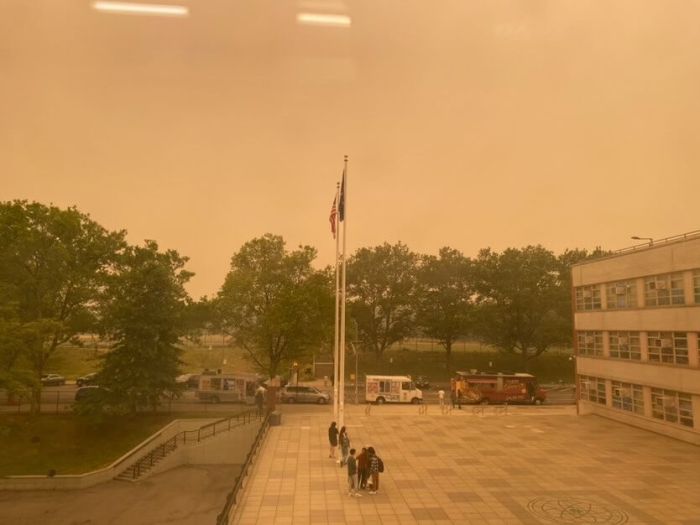Breathing is so automatic that many of us take it for granted. But, based on recent experiences, it may be time to pay attention to air.
While New York City’s air is generally good — and it’s gotten better in recent years thanks, in part, to cleaner fuel for buildings and more efficient vehicles — fluctuations have always been a part of our environment. Bad days of high pollen, extreme heat, or stagnant air are routine parts of spring and summer and result in alerts from city and state partners about precautions, particularly for those with asthma, heart or lung conditions or other vulnerabilities.
Several weeks ago, however, extreme deterioration in air quality was something that affected all of us. When the skies turned orange and red, we felt it collectively.
The fear and trauma left behind by that event are understandable. Air quality shifted so fast, so dramatically, that people may still fear that even minor oscillations will go to the furthest extreme.
The fact is that climate change will affect our city. We have seen heat-exacerbated deaths in our city increasing in the past decade. We see the numbers of extreme heat events and non-extreme hot days increasing. We see more frequent and more extreme weather events, like severe storms and flooding.
Climate change is a real threat to New Yorkers, and as we learned from the Canadian wildfire smoke that drifted into our city, it can affect the air we breathe.
But these new climate dynamics don’t change the fact that air quality fluctuations have been normal for a very long time. And there are existing tools to help us navigate them.
For starters, there is an air quality index that helps us understand who is affected by the current conditions. The numerical index corresponds to a color-coded scale. When the scale rates between 101-150 (orange), vulnerable people – people with heart and lung conditions, older New Yorkers and children – should limit time outdoors, avoid strenuous outdoor activities and take breaks if feeling symptoms like sore throat, watery eyes or headache.
When it climbs above 150 (red), that guidance applies to all of us.
At higher levels, precautions become more urgent – namely to avoid all intense (strenuous) and prolonged (more than one hour) outdoor activities and to move outdoor events inside.
To see the current conditions, the federal government has created AirNow.gov, a real-time air quality monitor for your community. Air quality projections are available on the State Department of Environmental Conservation’s air quality forecast, which predicts conditions for the current and following day. New Yorkers can also sign up for alerts from @NotifyNYC at nyc.gov/notify.
These tools are useful but they don’t remove every challenge. Air quality is notoriously hard to predict. Things can shift quickly and dramatically, as they did several weeks ago.
Additionally, air quality affects all of us differently. On many summer days, it will be borderline. We may wake up to 148 – making it unhealthy for sensitive groups — only to see the air clear and fall to a moderate 80 or so, which is a nice day to be outside.
So we need to do what feels right for us as individuals.
Of the many indices, meters and forecasts, the message you receive from your body may be among the most important. If your body is telling you to take a break, it’s good to listen.
Summertime shouldn’t be equated with stress and we know that it is healthy to be outdoors. The main takeaway is to pay attention. Check air quality and consider how it may affect you. If you start feeling any ill-effects, take action.
With the right information, we can all breathe a little easier.
Dr. Ashwin Vasan is New York City Health Commissioner.
Read more: July 4th Sex Survey Reveals Holiday and Desire Insights



































